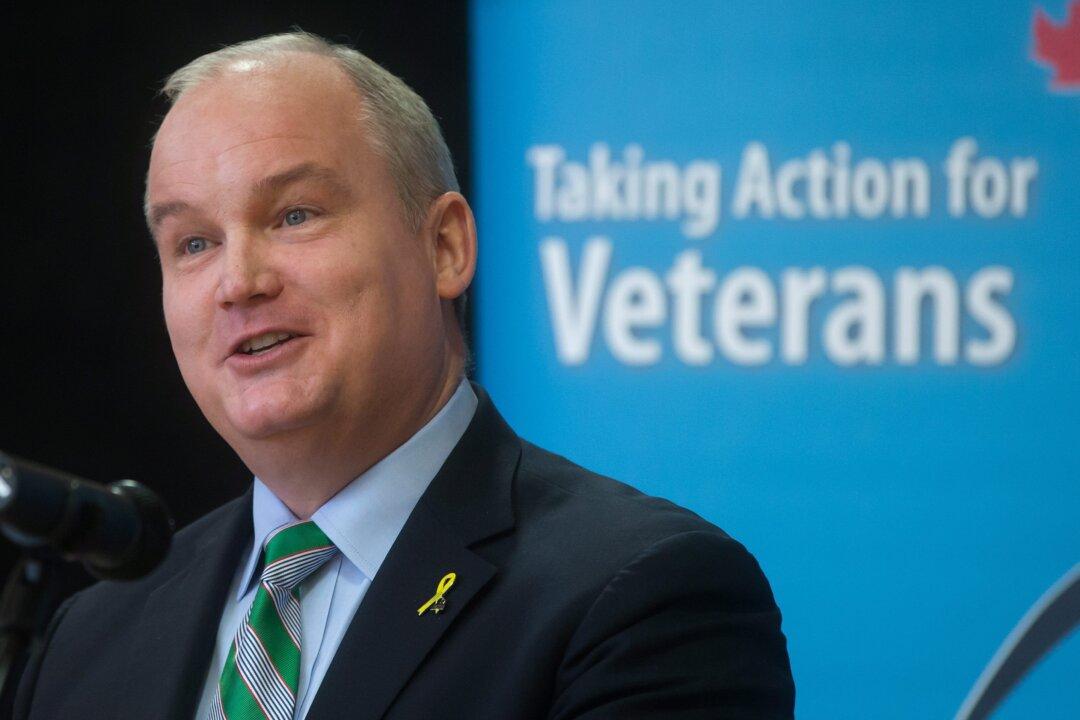VANCOUVER—Canada’s Veterans Affairs Minister says his government is filling in the gaps by promising additional support to seriously wounded former soldiers and to the people who care for them.
Speaking in Vancouver on Tuesday, March 17, Minister Erin O'Toole announced a new Family Caregiver Relief Benefit as well as expanded eligibility for the Permanent Impairment Allowance—life-long monthly financial support for badly injured soldiers with limited career and earning prospects.
“This constitutes an acknowledgment that the needs of veterans and their families are not frozen in time,” said O'Toole, after denying that his government’s recent initiatives and announcements amounted to an admission of having mistreated veterans.
“I think we’re trying to get the balance right and this is about getting it right.”
Veterans ombudsman Guy Parent found in a report last August that overly strict eligibility criteria meant nearly half of the country’s severely disabled troops were not receiving permanent impairment funding.
“The proposed changes we are announcing today would expand the eligibility so the criteria are less rigid and more veterans with serious impairments would qualify for this allowance,” O'Toole told a crowd of media and soldiers.





